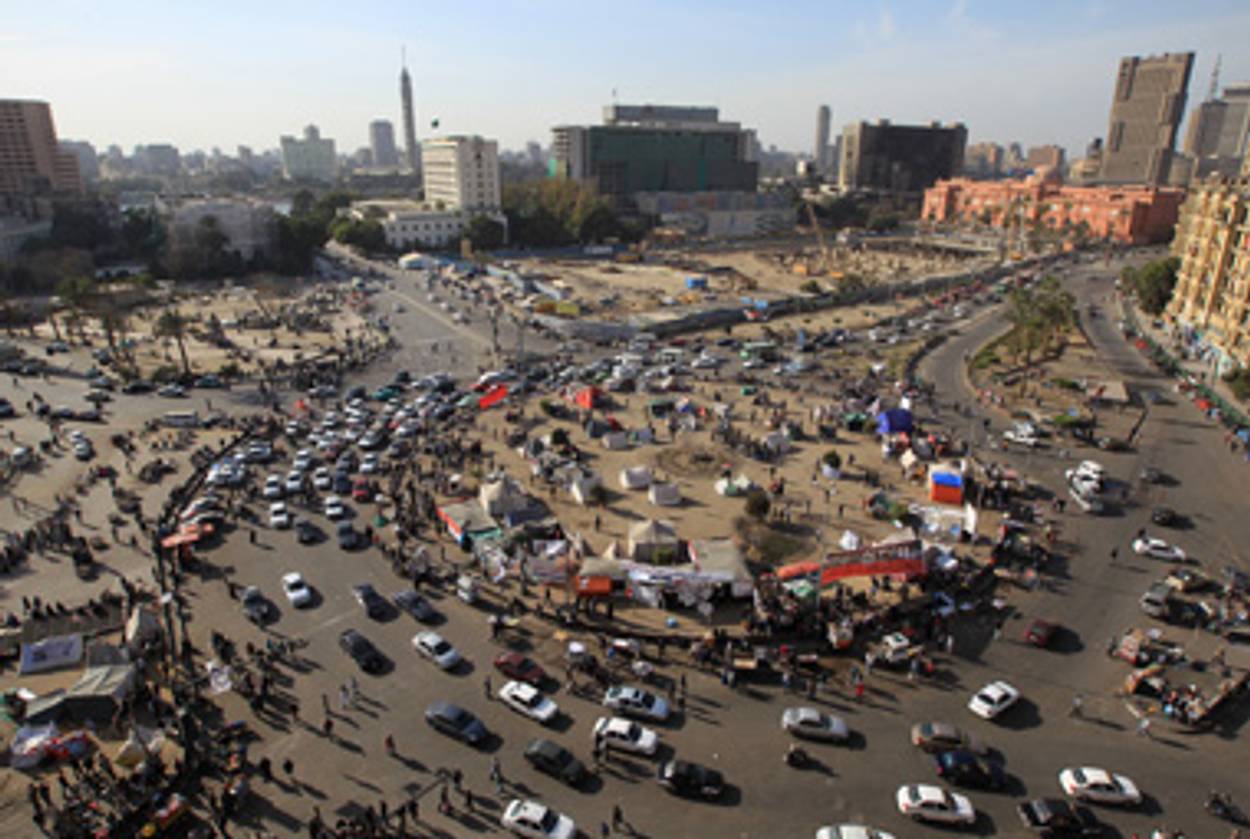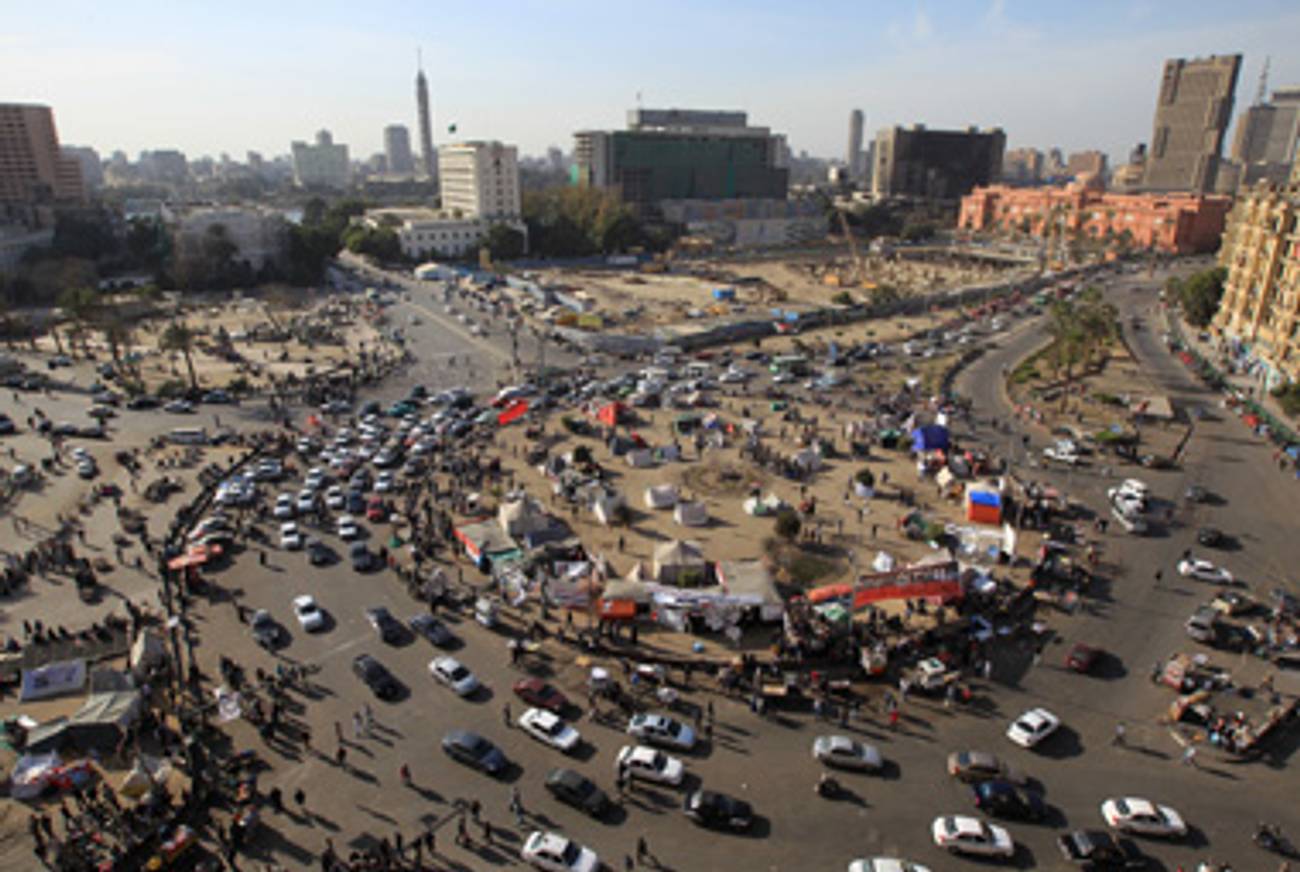Should the U.S. Cut Aid to Egypt?
Democracy best promoted through staff on the ground, not Congress




Following much noise in Congress (including, prominently, from Sen. Rand Paul) over potentially withholding the more than $3 billion in annual aid to Egypt due to the government’s recent crackdown on pro-democracy non-governmental organizations and their staffs, including Americans, the Muslim Brotherhood, the big winner in the recent parliamentary elections, has vowed to revisit the Israeli-Palestinian peace treaty. “Egyptians have long considered American aid as a kind of payment for preserving the peace,” the New York Times reports (they may consider it thusly since the aid started with the signing of the treaty in 1979!).
Late last year, when some U.S. politicians froze development aid to the Palestinian Authority following President Abbas’ decision to try to achieve full United Nations membership, Anthony H. Cordesman, a former defense official now of the Center for Strategic International Studies, argued that the aid was too important to Palestinian stability and Israeli security to cut. When I called Cordesman today for his thoughts on the Egyptian funds, he expressed sympathy for curbing Egyptian behavior: He does not think detaining peaceful NGO workers is a good thing. But, examining U.S. (and also Israeli) interests, he couldn’t escape the conclusion that bluntly cutting aid, even to the Muslim Brotherhood, is the wrong move.
“Sometimes this sort of thing is useful because it warns Egypt,” he said, “but we need leverage in terms of security, reform, human rights, and we’re dealing with an incredibly volatile situation, and really the way to exert that leverage is through the country team and the U.S. embassy group on the scene, not to have it from Congress.”
He added, “The question is always how much leverage we have and how to use it most effectively, and probably the worst way to use leverage is to have someone in Congress produce a bill that is not tailored to producing clear, tangible results in any way the political system in Egypt can accept.”
He acknowledged that, realistically, passing such a bill through the House and the Senate with filibuster- and if necessary veto-proof majorities is an extremely unlikely proposition. And he is open to alternative means of pressuring Egypt: “It may not be a bad idea for a small congressional group to give visibility to this risk.” But, he continued, “it has to be tied to the country team”—which pretty much means, to the administration.
He added, “One also has to be very careful—the administration has to basically respond in ways that don’t simply consist in stonewalling. They have to express their concerns at the same time as they have to make it clear to the Egyptians that we’re not going to act as an imperial or dictating power. And again, that requires cautious approach from the people in the country team.”
Cordesman was speaking in reference to U.S. interests, but obviously Israeli interests are implicated as well: As he put it, “In practice, what everyone wants is an Egypt that can move forward in democracy and development and concentrate on the needs of its people, and you are not going to get that in Egypt if we go back to a period of tension and hostility between Egypt and Israel.”
After discussing the Egypt aid, I asked about the movement to cut U.S. aid to UNESCO, the U.N. organization that accepted the Palestinians as a member. The tone in his voice over the phone matched his words: “I don’t think we gain anything by showing the world we can be forced out of an international organization over one issue,” he said, “where at the end of it you have basically the same impression as a 6-year-old when they take their baseball and go home.”
Egypt vs. Israel: How Congress Weighs the Risks of Cutting Our Aid to Cairo [The Atlantic International]
Egyptian Party Threatens to Review Treaty with Israel [NYT]
Earlier: Congress Cuts P.A. Aid; ‘Political Opportunism’
Marc Tracy is a staff writer at The New Republic, and was previously a staff writer at Tablet. He tweets @marcatracy.